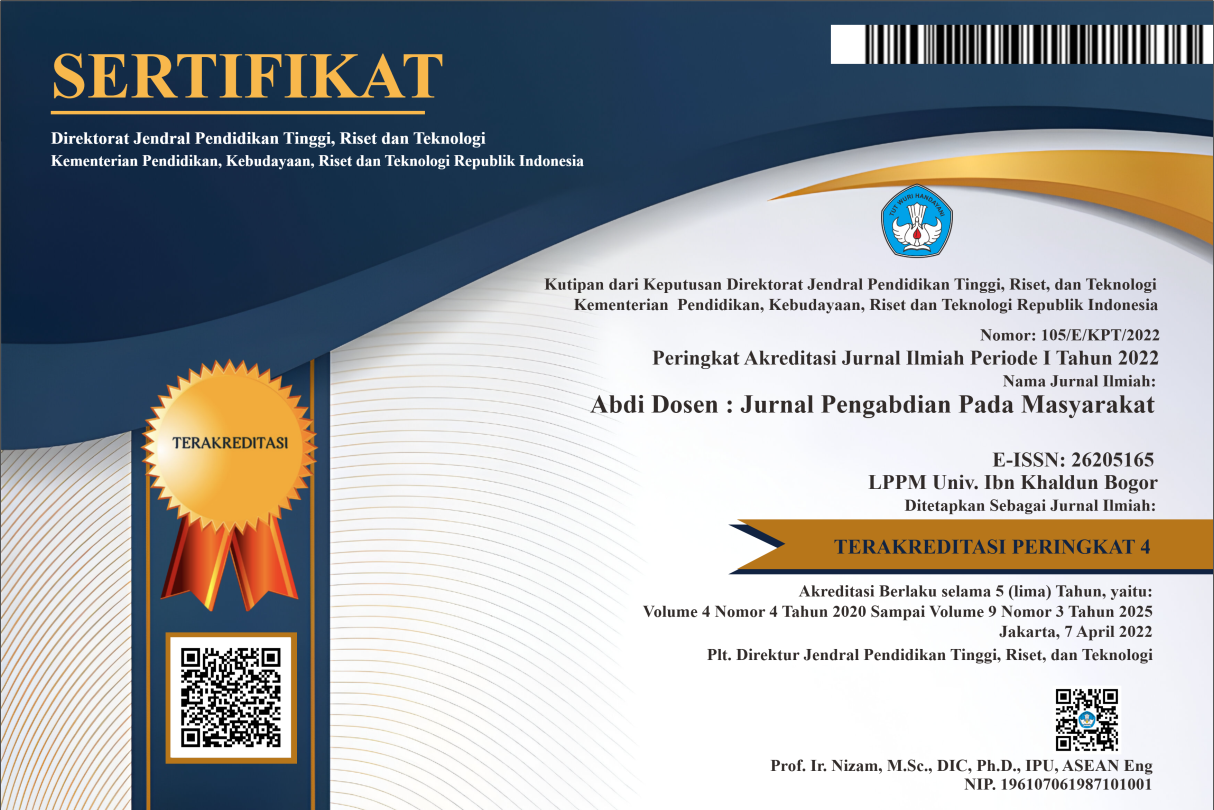COMMUNITY EMPOWERMENT MODEL IN THE DEVELOPMENT OF ENVIRONMENTALLY CULTURED VILLAGES IN WEST JAVA
Abstract
The environmental crisis occurs because of the low sense of care of mankind in protecting the surrounding nature. The lack of care can be assessed from the state of the large amount of waste, waste that comes from human life activities is not managed properly, resulting in pollution to the environment. The development of an environment-based village (ecovillage) is a community-based conservation program that involves communities located around watersheds and forest areas, whether protected forests, production forests or conservation forests, which aims to create patterns of human interaction with nature that are synergistic and in accordance with several principles and supporting aspects including ecology, economy, social and spiritual. The environment is a unity consisting of parts that support each other consisting of objects, forces, living things and human interaction behavior with nature, closely related to become a unity that affects the survival of creatures with each other in the universe. The formulation of the problem is how to build community awareness and increase community capacity in developing an environmentally cultured village. The research used descriptive research and qualitative methods. Data collection techniques used observation, interview and documentation methods. While data analysis uses data reduction methods, data presentation and conclusion drawing. The author uses Drake's theory of community-based tourism (CBT), which consists of the planning, implementation and utilization stages.
Copyright (c) 2025 Riny Kusumawati

This work is licensed under a Creative Commons Attribution-NonCommercial 4.0 International License.






















